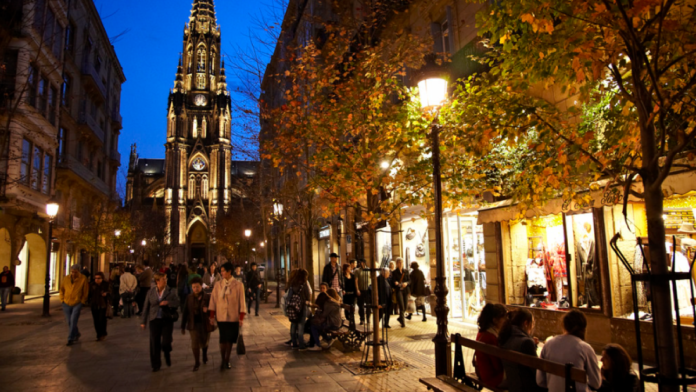The Spanish city of San Sebastian plans to ban the construction of new hotels and vacation rentals to foster a more sustainable tourism approach, a measure that could potentially come into effect as early as next year.
The action is not exclusive to San Sebastian, as Palma de Mallorca, a Spanish city, became the first in Spain to ban Airbnb in 2018 as part of tourism containment efforts, and similar measures have been implemented in other European locations, SchengenVisaInfo.com reports.
Tourists flock to San Sebastian due to the lasting influence of the ancient Basque culture that makes the city magnetically appealing.
Commenting on the decision, San Sebastian’s mayor, Eneko Goia, said that certain areas of the city will be designated as ‘saturated’ and pointed out that there is already an abundant supply of holiday accommodations for tourists.
The supply of tourist accommodation is sufficient and it is time to limit the opening of new businesses.
The measure is not going to impact the hotels that are already opened, but an increase in city centre demand is likely to result in higher room prices.
For existing hotels who already have their clientele, this move means new potential competitors won’t be able to operate, and therefore all the incoming tourists will need to stay in these existing hotels.
Etxebeste goes on to elaborate that the proposals could inadvertently exacerbate the issue of overcrowding, which is an unexpected outcome.
Although the high volume of tourists contributes significantly to the city’s economy, the action has been taken due to the city’s high ratio of tourists to residents, with ten tourists for every 100 locals.
The high volume of tourists has led to adverse effects, such as a deterioration in the quality of both local cuisine and culture, according to The General Urban Planning Plan, a report on the city’s condition.
Eventually, the relentless influx of tourists took a toll on the local residents, leading to an upswing in anti-tourism graffiti that featured the phrase “go home,” prominently marked on landmarks and bridges throughout the city.
The new initiative is anticipated to significantly improve the quality of life for the city’s residents and is not a complete ban on tourism, as emphasised by the authorities.
Instead, the new move is in line with the policy established since 2017, which aims to create a city that is authentic, offers a high quality of life for its residents, and attracts visitors.


